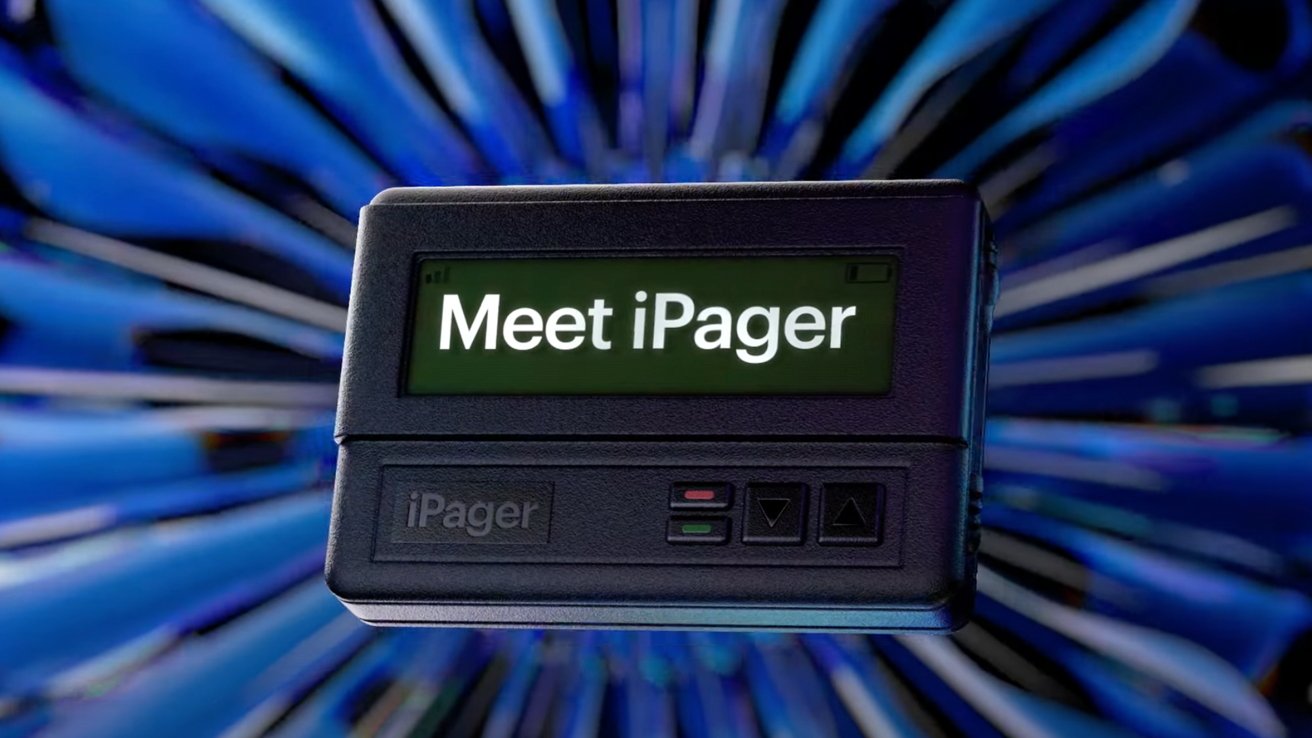Google continues to awkwardly push for iPhone RCS integration in new 'Meet iPager' video
Google has taken yet another awkward swipe at Apple's iPhone 15 and iMessage with another video designed to goad the company into adopting RCS.

The video, dubbed "Meet iPager," is heavily stylized to look like one of Apple's signature product launch videos. The video introduces the iPager, a fictitious device that stifles innovation and uses outdated technology to text cross-platform.
"iPager is a device that uses outdated messaging tech, like Apple uses when texting with Android. It comes with all the features you already know: lack of encryption, broken group chats, pixelated pics and videos and the (in)famous green bubble," reads the video description.
"iPager isn't real, but the problems that Apple causes by using SMS are," the description continues. "Let's make texting better for everyone and help Apple #GetTheMessage and upgrade to RCS."
Rich Communication Services (RCS) is a new internet messaging standard meant to replace outdated technologies like SMS. However, several problems with its implementation have kept it from becoming widespread, though a year of progress has made it slightly better than half-baked.
If Apple were to implement RCS in Messages today as an option to message Android users, it removes the simplicity of using Apple Messages and introduces Google's fragmented issues to the platform.
It's still not immediately clear who hugely benefits from RCS, though it is an increasing population. There is still some confusion around carrier or device support, and Google has attempted to get around this by baking RCS into Messages by Google.
The "issue" is mostly US-predominant. Other nations rely more on Whatsapp and other third-party messengers.
In 2022, Apple CEO Tim Cook responded about why Apple hasn't adopted RCS messaging, claiming it isn't of interest to Apple users -- and instead suggests that Android users make the switch to iPhone.
Read on AppleInsider

Comments
Kudos to Google. Great video!
That's not entirely true. Presently, Messages attempts to detect if the receiver's phone number is registered with iCloud. if so, it attempts to send the message as an iMessage. This might still fail if the recipient has no signal or has turned off data. In that case, it "falls back" to sending as an SMS message.
RCS requires data, and many people turn off data when they don't need it, so aren't they receiving fallback SMS messages even from other Android users? How does Android handle that scenario?
It's clear now that Apple is holding on as long as possible to show the elegant advantages of iMessage, so it's clearly a money play, but RCS is still a messy protocol that doesn't have as broad support as SMS does.
Apple would need to:
1) Test if the recipient can receive an iMessage.
2) Fallback to RCS and test if the recipient can receive this. How can they tell?
It might be Step 2 that complicates the process. How does the network inform the sender if an RCS message was received?
It would love to have the email addresses of 2 billion Apple users,
so that it could sell their info to advertisers and deliver spam right into their inbox.
2: There are zillions of alternatives for internet based cross platform messaging apps. E.g.: Whatsapp, Telegram, Signal, Messenger, Teams, Skype, Viber, etc... why would anyone want to have another one. Of course the answer is different to Google. It hopes that people will abandon these services for Google's.
3: Many users leave Android for iPhone partially due to the iMessage platform. Google wants to stop the bleeding.
Google paints itself in a rosy picture showing that it's out for the greater good, but at the end of the day it gives "free" services to users and in return it sells their data. I'm not buying the "all we want is to help people" message. This would be similar to Facebook selling an app for the protection of your personal data. :-)
funny. You know you’re the big dog when everyone is calling you out, trying to find a way to poke holes.
People switch to what's better. RCS has not been accepted by all the carriers, relies on every hop in the network chain to support encryption (which is optional under the standard) and doesn't handle group chat well. It's not better, it's not improving, and Google is going to drop it as soon as they decide to build another messaging app.
If RCS had any merit at all, Microsoft would be pushing it too... and they're not. Not because they no longer make a phone OS, but because they don't see it as a credible threat to Apple.